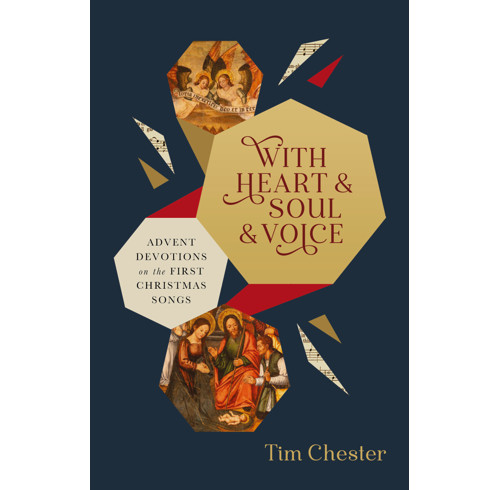Can you remember a time when you were on the receiving end of some generous hospitality? I bet you can. Hospitality can cover a range of things, and I believe that Christian hospitality is about showing the welcome to others that the Lord has shown us. Put another way, we move towards people, because our God has moved towards us. Often those receiving a warm welcome will remember it fondly, long after the person offering it has forgotten all about it.
Is your Sunday church gathering welcoming? I hope so. That’s a form of hospitality. But if we look in the Bible, I think it’s clear that we’re expected to open our homes to people and share with them, as a way of showing them love. There are some people who cannot do this – but not many. So assuming you are like most people, I want to encourage you by sharing seven myths I think we often wrongly believe about hospitality.
When I searched ‘Hospitality’ on Biblegateway, it came up with seven times the word is used in the New Testament. Coincidence? (Yep.) So I’ve interspersed my ‘myths’ with quotes about hospitality, so you can see for yourself. (NB: Myths and quotes not necessarily especially related!)
Note that a couple of people are commended in God’s word for their hospitality. What an honour! God must think it’s worth mentioning.
Do not forget to show hospitality to strangers, for by so doing some people have shown hospitality to angels without knowing it. Hebrews 13:2
- You have to be good at baking
I think I used to believe this, but it is frankly ridiculous. There’s nothing in God’s word about having to be good at cooking or baking. People in the Bible did work hard at it, as far as I can tell. However, they didn’t have the mod cons we’ve got. As my mam says, ‘Grandma used to say that homemade is always best, but she didn’t shop at M&S.’
Having said that, I do think that the more love and time we invest in getting good at making something to bless people with, the more we’ll enjoy sharing it with those people. There is something special about eating something that someone has lovingly prepared with their own hands, even if it’s chocolate crispy cakes. (I’ve decided they’re one of my all-time favourite cakes, by the way. Give me an easter nest over a swanky French macaron any day of the year.)
But if you hate baking, don’t have the equipment, or don’t have time, then shop-bought with joy is still an absolute delight.
2. You have to entertain
As far as I can tell, entertaining is a performance. I’m showing my guests what I can do. That means that if they perform well for me when I go to their home, I’m obliged to perform just as well – or hopefully better! – when they visit me.
This is a lot of pressure. It’s also quite self-serving, when you really stop to think about it. If my aim is to impress my guests, and even make them feel inferior, then I’m not loving them. When we’re inviting people into our home, we’re not putting on a show: we’re inviting them to join in with something beautiful, which is a household living by God’s grace. “Come and see,” we’re saying to them. “The Lord is good.”
Even if you’re ‘entertained’ by someone else, why not try inviting them over and just serving them selflessly? If your home is small and scruffy compared to theirs, it’s an opportunity to boast in Christ. He’s all we need in our homes to have a good time.
No widow may be put on the list of widows unless she is over sixty, has been faithful to her husband, and is well known for her good deeds, such as bringing up children, showing hospitality, washing the feet of the Lord’s people, helping those in trouble and devoting herself to all kinds of good deeds. 1 Timothy 5:9-10
3. You have to have money and space
Hospitality does cost money, there’s no denying it. But God knows our means. He can use what I offer up in hospitality and bless people with it. Inviting someone in for a hot drink is probably something we can all afford to do. You could even ask them to bring the biscuits! (Shop-bought is fine.)
Let’s remember that the early church were poor. If God can enable them to be hospitable then he can certainly do it for us. We can pray and ask God to multiply our food so we have enough. We can put others first and see how the Lord provides everything we need.
Don’t underestimate the power of simple, humble hospitality offered in faith.
I’ve written before about how blessed I’ve been when people with very little space have invited me into their home. Not to put down anyone with lots of space, but when someone in a tiny one bedroom flat invites my entire family over for dinner, it’s the kind of humble, Christ-like selflessness that sticks with me.
We ought therefore to show hospitality to such people so that we may work together for the truth. 3 John 1:8
4. It’s a cultural thing
Some cultures are more hospitable than others. I recently visited a country which is known for its hospitality. I’m also northern, where people tend to pop round for a cup of tea without warning. But now I live in London, which is known for being inhospitable and where you have to book cups of coffee weeks in advance. So yes, hospitality is a cultural thing.
But the Kingdom of God is a hospitable culture. Our King welcomes anyone! So if we live in a community – like London – that’s not hospitable, it’s really easy for us to shine like stars by opening our homes to others. And if you’re not from a background that values hospitality, then you can rejoice! The Holy Spirit has made you new. Wouldn’t it be wonderful if our family and friends noticed how much more welcoming we’re becoming, year after year?
[Publius] welcomed us to his home and showed us generous hospitality for three days. Acts 28.7
5. You have to be an extrovert
It’s great that people nowadays are often aware of how they’re energised, whether it’s by being alone or being with others. But God doesn’t command just the extroverts to practise hospitality. And he also knows us and what we need.
We all need to be around people, whether we find it draining or not. And remember that being hospitable doesn’t mean you have to be the life and soul of the party. You can go and wash the dishes while everyone else chats, if that’s what you need to do.
I’m not trying to burden anyone, but just as extroverts need time alone, praying and reading God’s word, so introverts need to spend time with other people, loving and serving them. And the Lord is so kind – he thwarts our plans when they would do us harm! (He’s cancelled many of my plans which in hindsight would’ve tipped me over the edge!)
Gaius, whose hospitality I and the whole church here enjoy, sends you his greetings. Romans 16:23
6. It’s just not for me.
Some people will find hospitality comes naturally to them and others won’t. Some people find prayer easier than others. Some people are naturally joyful and positive; others aren’t. But we’re all called to joy, prayer and hospitality. I do know some people who actually can’t invite people over for different reasons. But there are other ways to be hospitable, and I’ve seen these people find creative ways to show hospitality. You can invite people out for coffee or food. You can organise a social. You can invite yourself over to someone’s house and offer to cook. These are all ways to move towards people with love.
“Be joyful in hope, patient in affliction, faithful in prayer. Share with the Lord’s people who are in need. Practice hospitality.” Romans 12:12-13
7. It’s not important
Satan hates hospitality. If you don’t believe me, invite some people over. See how many ways you’re tempted to sin against your guests, your family, and anyone else who you come across. Or see how the thing you’ve cooked thirty-seven times before collapses or gets dropped. Or notice how plans have to be cancelled and rearranged over and over.
God’s word says, “How good and pleasant it is
when God’s people live together in unity!” Psalm 133.1
I’m convinced that hospitality is one way that unity is nurtured and maintained. Remember that the early church”devoted themselves to the apostles’ teaching and to fellowship, to the breaking of bread and to prayer.” Acts 2.42.
As we eat and drink with people, we’re either sharing fellowship or inviting people into the fellowship they could have in Christ. We’re imitating our generous God to those who know him or those who don’t. Satan hates this and the Lord loves it. Don’t underestimate it.
So if you consider yourself a pretty hospitable person or if you’ve never tried it – please be encouraged. Put on the armour of God and go out there and take the next step.
Offer hospitality to one another without grumbling. 1 Peter 4:9
Further reading: ‘Extraordinary Hospitality (For Ordinary People)‘ – read my thoughts on it here. Also ‘The Ministry of a Messy House’ by Amanda Robbie is a classic I keep coming back to.
















